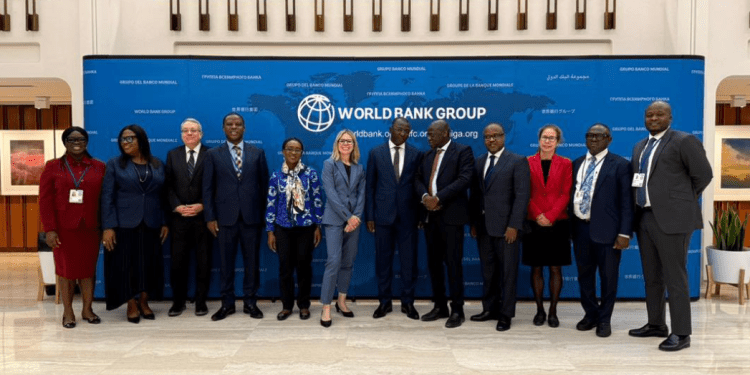Ghana has secured a US$260 million agreement with the World Bank aimed at addressing the US$1.2 billion in losses and inefficiencies plaguing the energy sector.
Under the Energy Sector Recovery Programme, the deal includes a US$250 million credit for metering procurement and a US$10 million grant for clean cooking initiatives, in alignment with the Bank’s Programme for Results (PforR) initiative.
As part of the agreement, the World Bank will facilitate the procurement of one million meters through competitive bidding, with an initial 20 percent advance on the clean cooking component.
The program sets specific targets, including cost-efficient energy transmission, transparency in the Cash Waterfall Mechanism, and significant reductions in revenue collection losses for the Electricity Company of Ghana (ECG).
The initiative aims to close the metering gap and integrate new meters into the billing system to mitigate commercial losses.
During the signing ceremony, Finance Minister Dr. Mohammed Amin Adam emphasized the government’s commitment to enhancing efficiency in the energy sector and improving its financial viability. He urged ECG to tackle high distribution losses and low collection rates, which have resulted in approximately GHS 18 billion (US$1.2 billion) in energy sector financing shortfalls in 2024 alone.
“The cash waterfall mechanism must be strictly followed. We will not compromise,” he stated, calling on ECG to ensure that all collections are properly channeled back into the system to foster investor confidence.
Dr. Amin Adam added, “This project presents an opportunity to build a robust energy infrastructure that will serve as the backbone of a thriving economy. Our goal is to stabilize the energy sector while enhancing the quality of life for our citizens.”
Deputy Energy Minister Mr. Collins Adomako-Mensah assured that all project timelines and targets would be met, noting that a dedicated team has been established to oversee the implementation across beneficiary agencies.
Dr. Robert Taliercio O’Brien, World Bank Country Director for Ghana, Liberia, and Sierra Leone, highlighted that the program aims to boost energy sector efficiency and financial performance. He raised concerns about the US$1.2 billion shortfall, which exceeds the Bank’s average annual disbursement to Ghana, and urged compliance with the deal’s objectives.
Mr. Asjish Khanna, Protective Manager for West and Central Africa Energy at the World Bank, emphasized that the financing arrangement ties disbursements to performance outcomes.
“This approach ensures that funds are released only upon achieving results, rather than providing money without guarantees of effectiveness,” he explained.
He also noted that ECG’s financial accounts should be audited and disclosed annually, with funding contingent upon progress in reducing losses and optimizing collections.
These measures are designed to ensure that Ghanaians receive accurate metering for their consumption while reducing ECG’s fiscal burdens, ultimately leading to improved service for citizens.


